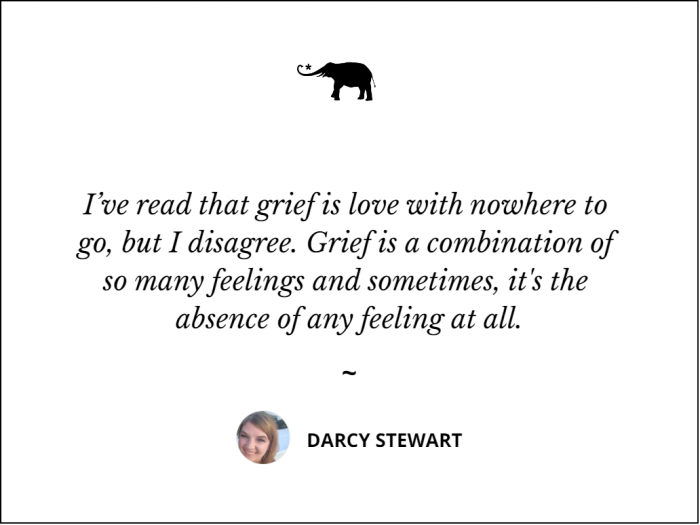View this post on Instagram
I’m ready for Delilah to come home.
As if she was on a doggy vacation. The thought arose as I stared into my closet, exchanging my day clothes for pink polka dot jammies. My morning clothes lay in their usual spot by the bedroom door—ready to throw on when it’s time to potty my four-legged brown sugar bear. It was our routine. It’s a cold dark morning, my eyes are still half shut. Looking at my neatly-piled clothes by the bedroom door, it hits me—she’s not coming home.
Grief is not about the who, as much as the bond and connection we are grieving. The loss of that connection, the change, and the cavern left in our lives are what make it feel so dark and unbearable.
There are no tips for grieving, but here are a few experiences I’ll share from my most recent encounter:
The Brain and the Heart Dance to Different Rhythms
Amidst grief, we experience a disconnect between heart and brain. We know what it’s like to have our brain know something, but have our hearts still full of feelings. But in grief, the opposite can happen too. Those days when our hearts feel at peace, but our brain, seeking routine, lags to catch up.
Expecting phone calls, looking for a loved one across the room, arranging your schedule to make that routine appointment that no longer applies. I found myself often, looking for Delilah around the house, waking up at our routine hours, or hearing her shake in the middle of the night.
Accepting that our heart and brain dance to different rhythms helps us process every part of our grief as it arises—mental, emotional, or spiritual.
When we meet grief in real life, we learn it is not linear or logical and that’s okay. Grief comes in waves. Allowing ourselves to experience feelings whenever they arise is like riding those waves instead of fighting them. Noticing when our brain goes into autopilot and snaps back into our changed reality is like flowing with the waves as well. In grief, our hearts and brains bob up and down in the water at different times.
This back-and-forth of heart and brain is the dance of grief.
The Journey of Grief Lives With You
In an attempt to understand and expedite our human experience, we search the internet for tips like, “how to process grief,” “what to expect when you’re grieving,” and of course, “the seven steps of grief.” What these articles don’t explain is that grief does not disappear.
Grief, from the moment we meet it, becomes a companion that joins us on our journey moving forward. When we lose someone, or, when we lose a piece of ourselves, that loss doesn’t go away. Living with that loss becomes part of our lives. The experience of grief comes with us.
Sometimes the best we can do is learn to live with it. It’s not about “moving on,” it’s about moving forward. While it doesn’t disappear, our grief will transform. Over time, it may not feel as large or heavy.
We realize grief is our companion. We will find new ways to honor it that feel better. We don’t need to rush grief—we can move forward with it, together.
Everyone’s Experience is Their Own
I’ve read that grief is love with nowhere to go, but I disagree. Grief is a combination of so many feelings and sometimes, it’s the absence of any feeling at all. Grief knows loss, absence, and change, and it’s all of these things left on the living to navigate.
We don’t talk about grief, so we don’t know what to expect when we meet it. In some ways, it’s just as well, because everyone’s experience is their own. It feels unfamiliar and strange at first. If we’re not careful, we can judge our grief. Rejecting our grief only makes it more painful.
Your grief may surprise you. Let it. Each grieving experience is as unique as the bond that has changed and the loss that has occurred. There’s no room for judgement in grief.
The Way to Healing
When we meet grief, we also meet a new, deeper layer of ourselves and our humanity because it shakes off our daily armor. Grief is one of the deepest human experiences we can have because it is so intimate.
And yet, grief and loss are two experiences that every human will encounter. The most helpful support I receive in my grief is from the listening ears of those who have experienced grief and loss themselves. Ears that hear me tell stories, ask questions, express feelings, and vocalise confusion about my nonlinear grief journey.
The way to healing is as diverse as the grief itself. We, who have partnered with our grief, know this journey is a nonlinear, unusual, and messy part of our humanity. When you find yourself in the depth of grief, know that somewhere not so far from you is another soul who knows this pit and has found a way to walk forward toward healing. Honor your loss, honor your grief, and honor your healing.
~











Read 6 comments and reply